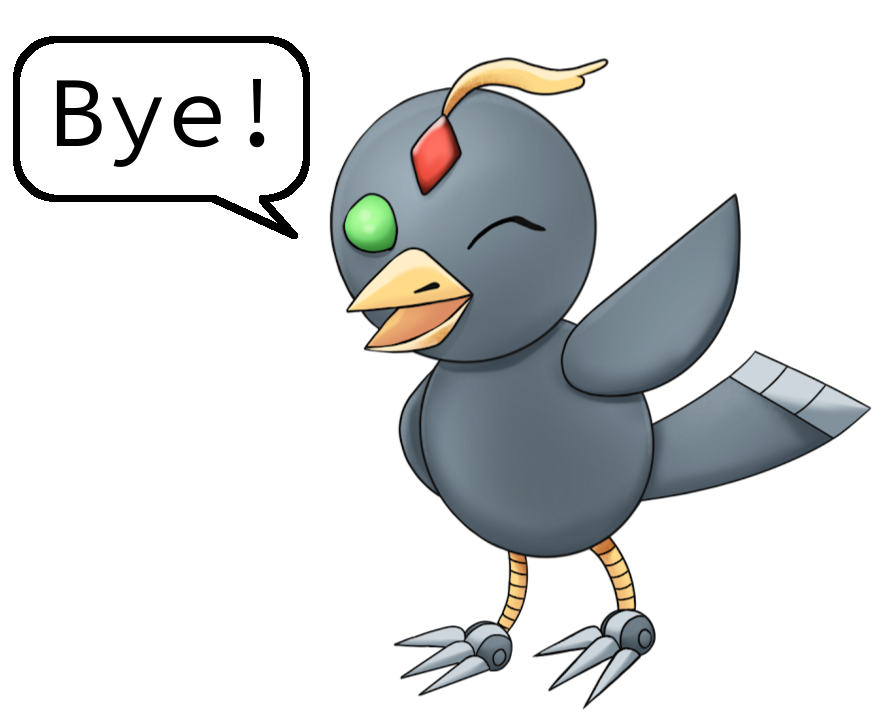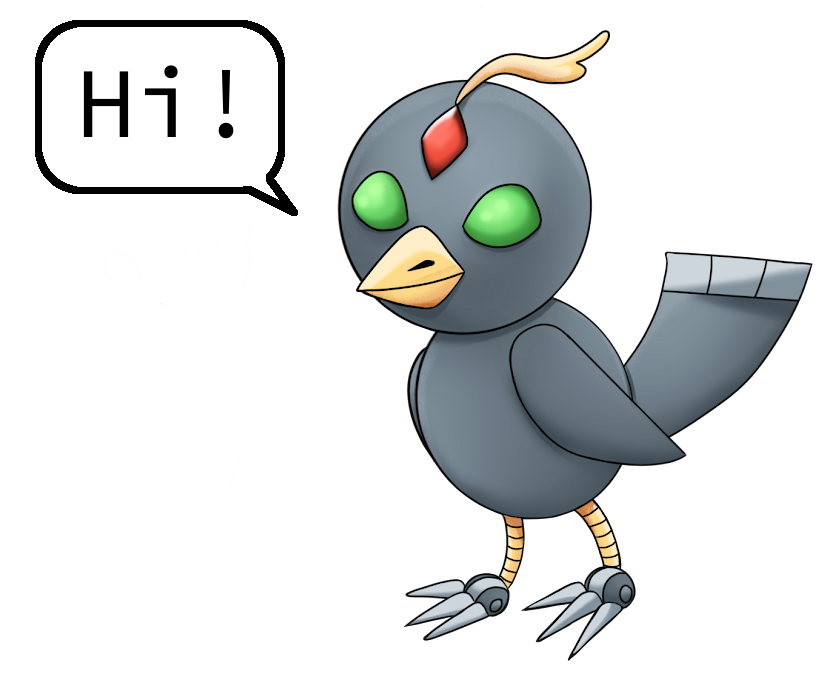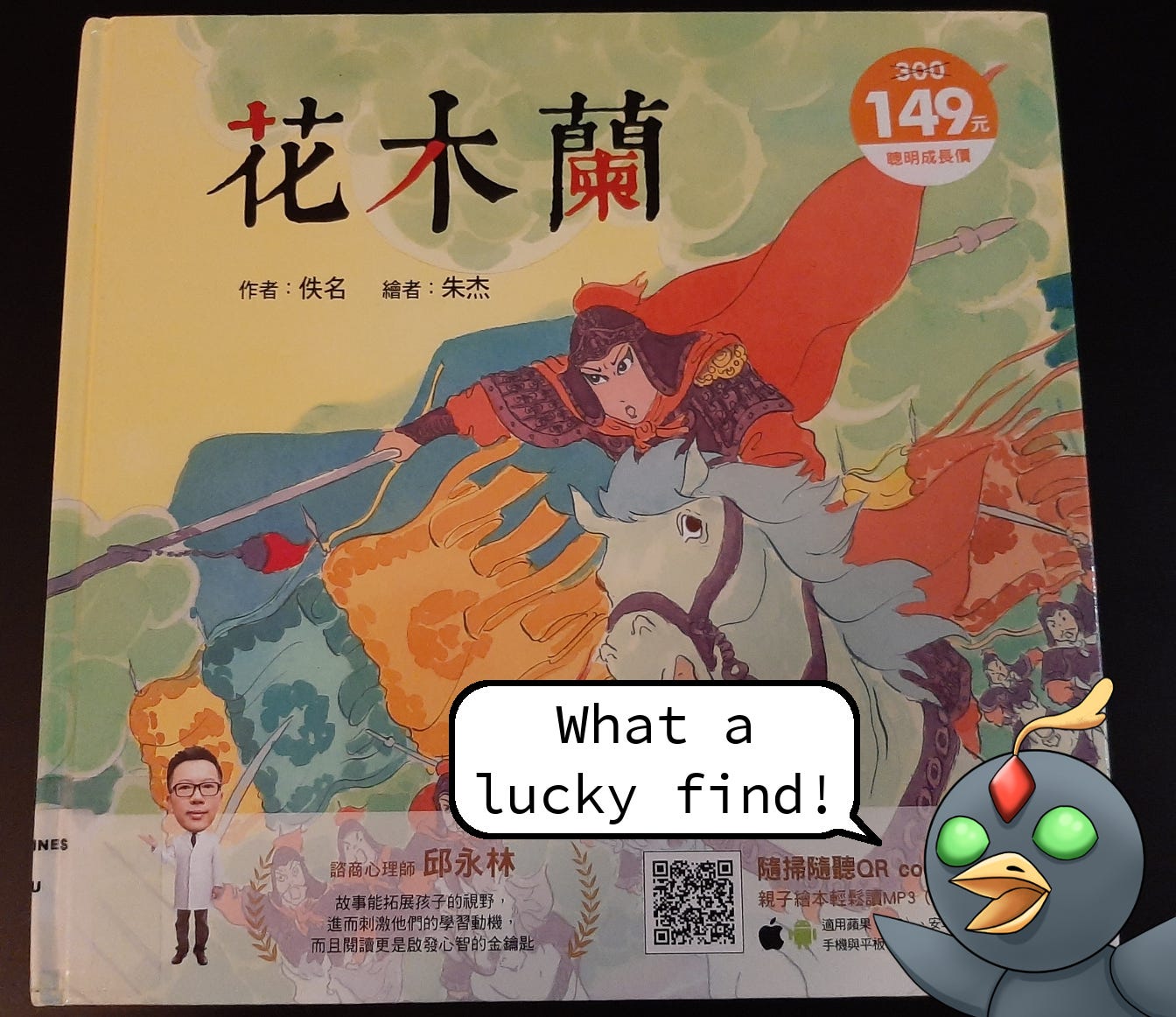On Creating "Mulan Searches for the Medicine of Immortality" | Falcon Talks
A lucky find and the Ballad of Mulan
Hi everyone!
My new short story, Mulan Searches for the Medicine of Immortality, came out last week - and I am very proud of it! 😄 (Please give it a read if you haven’t yet!)
Since I’m winding down for the year, I thought that I’d do an easier article and talk about some of the process and research that went into creating the story.
I had wanted to write a short story about/featuring Hua Mulan for a long time now, even all the way back when Retelling Myths was still ongoing.
However, years would pass, and I still couldn’t figure out how to do so.
That was… until The Further Adventures of Riding Riding Hood.
As I was planning the adventures that Red would have while searching for a cure for Princess Snow White, I knew that I wanted to do a few stories where Red would travel outside of her kingdom - this was, of course, so that I could feature fairy tales/folktales outside of European origins.1
Mulan was perfect for one of these.
The very first thing that I decided on was to NOT rewatch Disney’s Mulan (1998).
This wasn’t because the film is bad or anything like that (in fact, I remember enjoying it many years ago). Instead, this was because the film had added and changed a LOT of elements in their retelling.
This would be too much noise for me - I needed the very basic folktale, so that I could be free to take what I needed to incorporate into Red’s existing world.
As luck would have it, while I was still pondering the overall plans for The Further Adventures of Red Riding Hood, I happened upon this book at my local library:
It was a picture book that retold the Hua Mulan story in modern Chinese (Traditional) prose!
This was a great foundation to start with, as it told the basic story in a simple way - it gave me the bones of this millennia-old story.
One particular thing in the picture book that caught my attention, was that Mulan served a Khan.
This confused me - until I did more research and found that the currently-known first written record of the story was most likely the Ballad of Mulan - composed during the Northern Wei dynasty of the Northern and Southern dynasties of China, when Northern China was ruled by the Tuoba clan of the Xianbei people, who are said to be proto-Mongols.2
This, of course, led me down the path of trying to read the Ballad of Mulan (木蘭辭).
And here are the three translations3 that I managed to find:
YellowBridge’s translation with the Chinese and English side-by-side
This one is the one that I used the most and most recommend; however, it is a bit rigid and overly literal at times.
MulanBook’s English paraphrase
I read this as a secondary companion to the above; it is incorrect in some places, but more fluid and easier to read overall.
I mention this extra one because MulanBook mentions it; this one I found to be… decent, but it took too much liberty with how the poem sounded AND was also too stiff of a translation. But it still has its merits, even if I barely used it, if at all.
There’s not much more to say after this - after reading both the original Chinese version and the English translations of the ballad, I was finished with most of my research and was ready to begin formulating the story.
I used the Ballad to form Mulan’s backstory, I pulled from the First Emperor of China’s obsession with immortality to give Mulan her quest, and I had Jiang Ziya from Investiture of the Gods help with the resolution.
If you’re interested in more tidbits, I wrote down a whole bunch more in the Commentary for the story!
But, for this article, I wanted to focus on the story of Mulan - and I hope that you found it interesting as well!

Update (2025-01-10):
pointed me to a translation by Han H. Frankel on Columbia University’s website here (search for “The Ballad of Mulan”), and it’s the best translation that I’ve read so far! Thank you, Reina! 😄Unfortunately for my plans, the Mulan story and the upcoming four-part One Thousand and One Nights arc are the only ones that made it out of the planning stages… Sorry, “Tongue-Cut Sparrow”, “Crane's Return of a Favor”/”Crane Wife”, and others that I’m forgetting.
Someone with a better understanding about that time of Chinese history and Mongolian history could probably explain it better.
I can read Chinese - but as most of my reading, writing, speaking, and interactions are done in English, it helps to have the ballad in a language that I’m more familiar with.




So happy to help!!